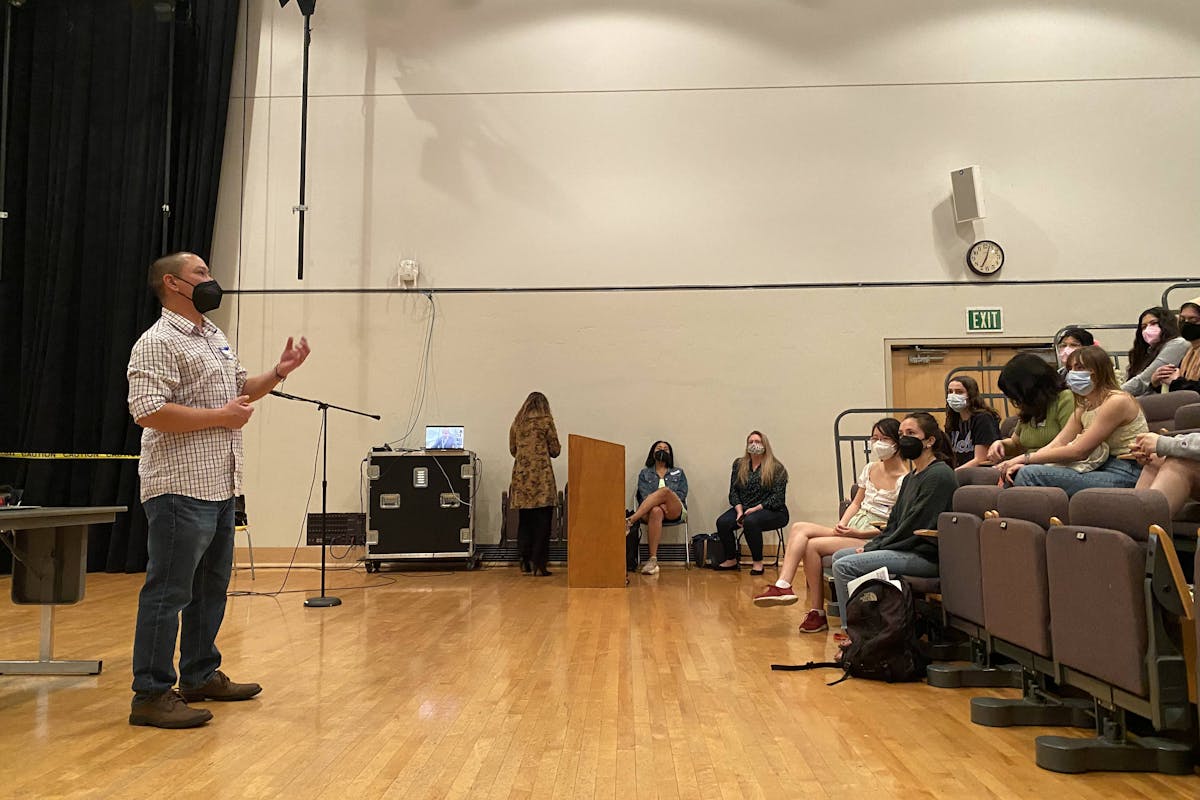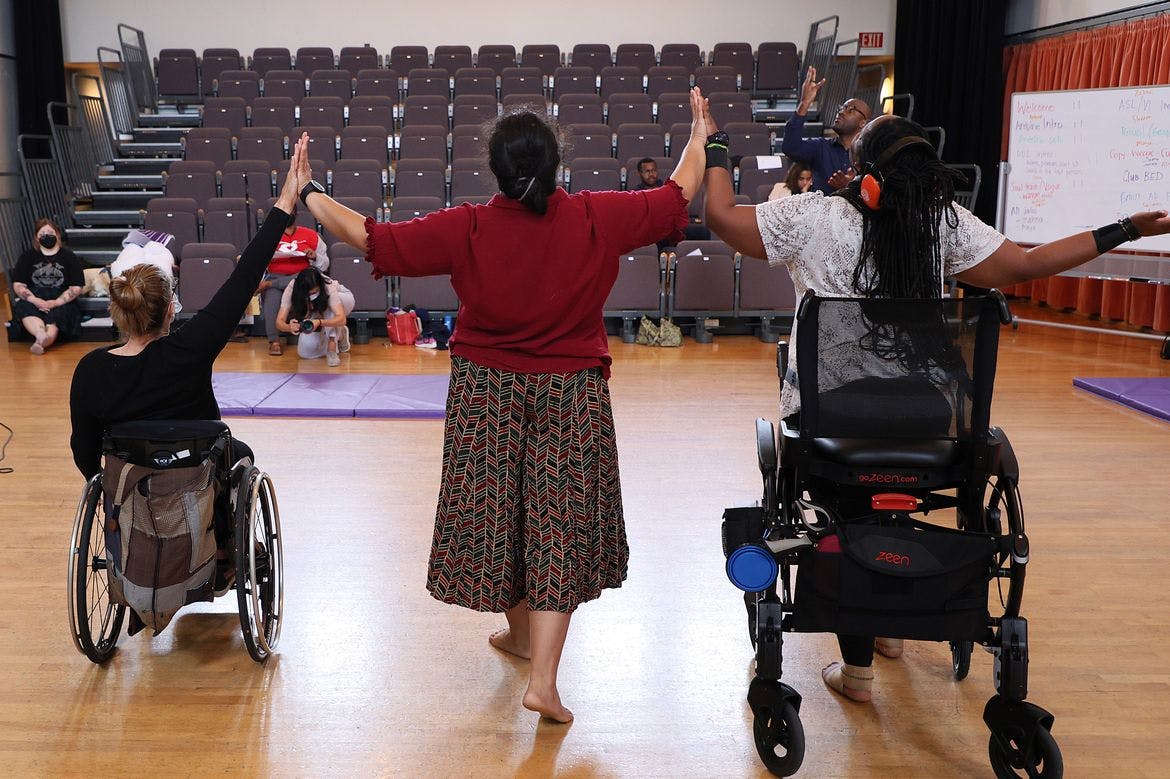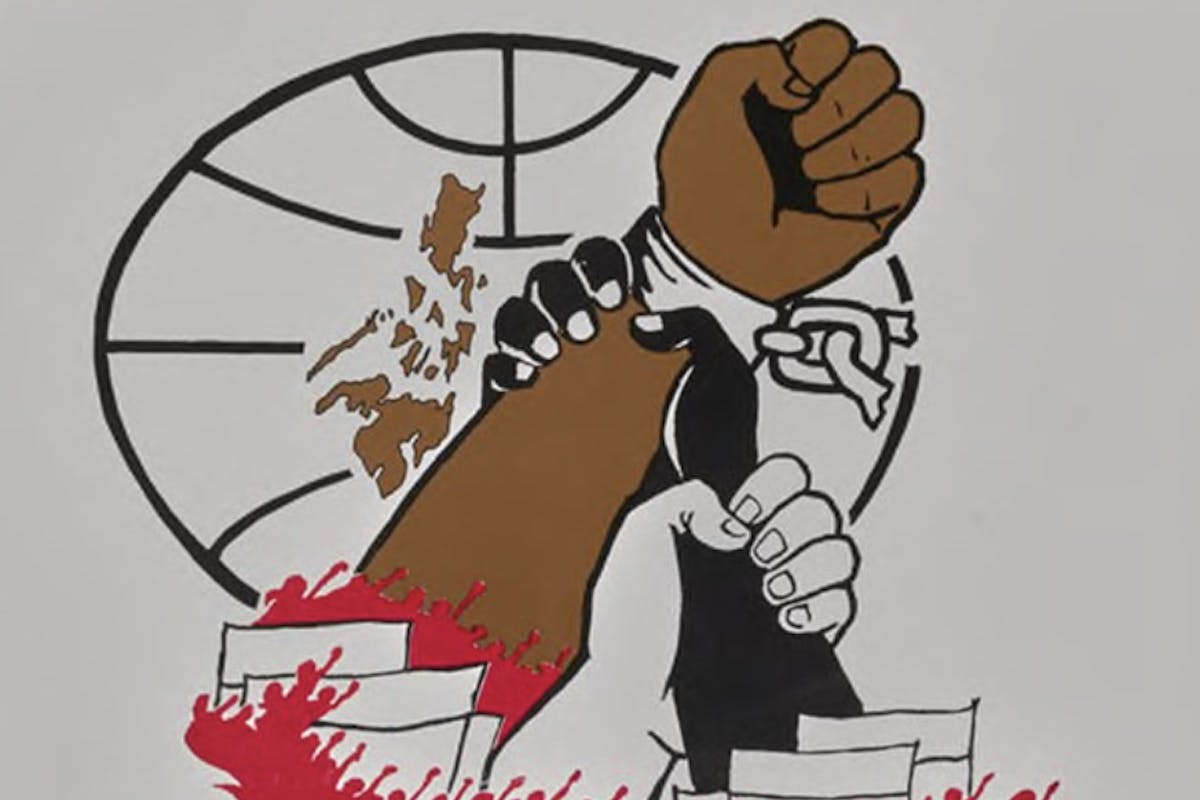Jimmy Wu: How writing in prison saved my life

At just 16 years old, Jimmy Wu committed a crime that led to 13 ½ years of incarceration.
In a Los Angeles juvenile detention facility, InsideOUT Writers introduced him to creative writing. He's now executive director of the organization and an advocate for juvenile justice reform.
This quarter, Wu is teaching a class at UCLA through the Visual and Performing Arts Education program (VAPAE) called “Arts Programs in Correctional Institutions.”
InsideOUT Writers was founded in 1996 to reduce recidivism by working with young people not only while they are serving time in juvenile halls but after they have finished their sentences. Through creative writing, participants express themselves, gain confidence, and re-integrate into their communities.
Writing, Wu said, “gives them an outlet, an instrument, to be able to really stay in touch with who they really are. Being in a detention facility, it's not easy to be vulnerable and to allow yourself to display any type of emotions.”
When Wu first arrived at juvenile hall and was offered a spot in a creative writing class, he accepted – not because he was interested in writing, but because it was an excuse to spend more time out of his room.
Wu met Mark Salzman, who became his writing teacher and taught Wu and the other students “to learn how to become vulnerable in an often hostile or unforgiving environment.” Wu bonded with the other young people in the writing group.
Throughout the course of his incarceration, Wu continued writing as a tool for survival and to remain connected to his hopes and dreams for his life after incarceration.
“It was something that really saved my life, where I didn't have to resort to other forms of escape from reality – even if it was only going to be temporary through using drugs or consuming alcohol – but my reprieve was really being able to know that I always had my paper and pen to go to, to just escape the harshness of the reality of my existence during my incarceration.”
When he was two years old, Wu’s parents moved the family from Taiwan to the San Gabriel Valley. He had a good childhood, he says, but his parents divorced when he was 12. His brother Aaron went to live with their father, and Jimmy went to live with his mother.
At 15, Aaron was diagnosed with Duchenne muscular dystrophy, a genetic disorder characterized by progressive muscle degeneration and weakness. Aaron could only expect to live to the age of 25. That diagnosis, Jimmy said, “fully derailed my entire life and my family’s.”
While the family struggled to come to terms with the heartbreaking news, Wu “turned to some of the wrong people for that sense of love and support.”
At 16, Wu and some friends tried to steal a car with two passengers inside. He was charged with carjacking, kidnapping, and armed robbery. He took a plea bargain, which reduced the charge to false imprisonment and a sentence of 15 years and eight months.
At 18, he was transferred from juvenile hall to an adult correctional facility, which was “probably one of the most intimidating times of my life.” He went from being around other boys his age to being one of the youngest inmates in an adult maximum-security prison, surrounded by over a thousand grown men, 80% of them serving a life sentence, and many of them serving life without the possibility of parole.
Wu couldn’t express that fear outwardly, but he could write about it.
“I was a complete mess. And so being able to at least unleash all that nervousness, that terror that I had inside when I was able to write, it was incredibly helpful,” he said.
Returning home from incarceration after 13 years and now being in his early 30s was a challenge. Wu went from having very little freedom and few choices to make on a daily basis to having to make important short- and long-term decisions almost daily.
Thanks to the support and stability of his family, Wu was able to get himself on his feet, secure stable employment and support himself financially. He became the first former student and alumni of InsideOUT Writers to become a staff member. He rose the ranks from case manager to alumni program director, interim executive director, and finally in 2018, he Wu was named executive director of InsideOUT Writers.
Wu’s class at UCLA, Arts Ed 105: Arts Programs in Correctional Institutions: History, Theory, and Practice, “is focused on various forms of arts that can be beneficial to those who are incarcerated in correctional facilities,” Wu said, including creative writing, photography, theater, and music.
In the class, Wu talks about overcrowded state prisons and "the new Jim Crow, where it's like modernized slavery," referencing civil rights litigator and legal scholar Michelle Alexander's best-selling book about the racial roots of mass incarceration.
He challenges the students to rethink our justice system's focus on punishment over rehabilitation.
"How do we remove ourselves from a continued practice of a punitive system and instead replace it with a system of care and support?," he asked.
Students will also paint a mural together in the InsideOUT Writers office.
InsideOUT Writers serves currently and formerly incarcerated youth and young adults. Under Wu’s leadership, they are also expanding their services to young people who are deemed at-risk of incarceration.
“It's an opportunity for us to help get them back on the right track, so they don't end up becoming more entangled in a very complex juvenile justice system,” he said.
Story by Avishay Artsy

